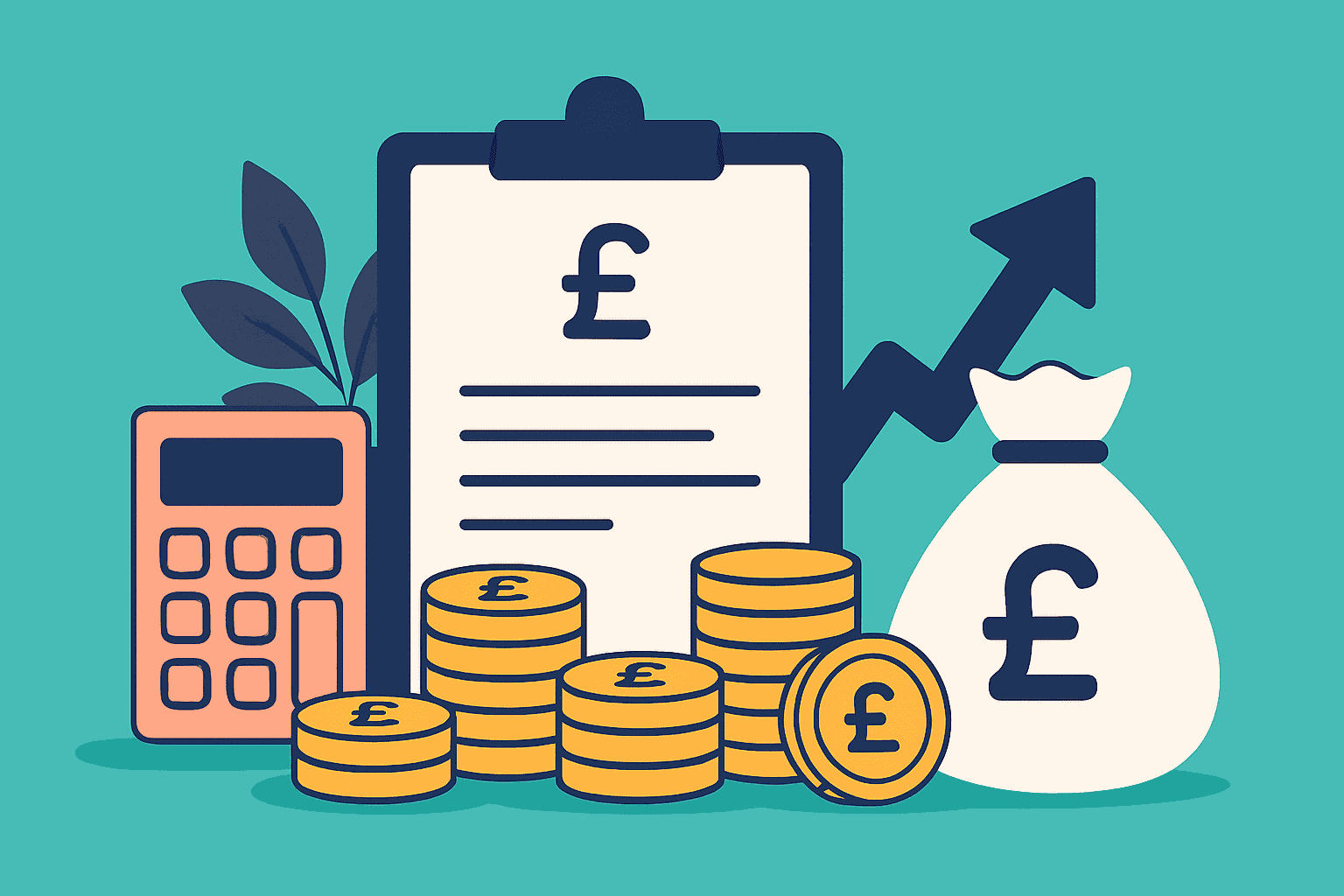Capital Gains Tax Explained: How to Minimise Your UK Tax Bill
Understand how Capital Gains Tax works in the UK, including rates, allowances, and practical strategies to legally minimise your tax bill.

Introduction
Have you sold an asset or are you intending to sell investments or property soon? If yes, then uninterrupted knowledge of crucially important Capital Gains Tax (CGT) must be yours. The CGT in the UK is implemented when negotiable assets are sold at a profit. Without sound planning, the tax becomes a genuine enemy to your financial returns.
Here we give you the nitty-gritty of how exactly Capital Gains Tax works, with allowances and rates for the 2024/25 tax year. Also, we provide actionable tips and strategies to help you enter into the realm of legal reduction of CGT bills, and ensure you retain more of the money with which you have had to work hard.
What is Capital Gains Tax?
Capital Gains Tax (CGT) is a tax imposed in the UK on gains when the value of certain assets increases and when they are sold or disposed of.
Typical assets chargeable to CGT are:
- Residential property (mostly not one's principal dwelling)
- Shares and investments
- Valuable personal possessions (e.g., antiques or jewellery)
- Business assets
You pay CGT only on the gain and not on the full sales price. The gain is calculated as the price found by subtracting purchase price with eventual allowable expenses such as rewriting or improvement costs.
Capital Gains Tax Rates and Allowances (2024/25)
Every year, HM Revenue & Customs grant exemption and charge rates for CGT; here is what is applicable for 2024/25:
Annual Exemption Allowance
- £6,000 per person (reduced from previous years)
- These allowances can be combined between the couple (£12,000 in total)
CGT Rates
- Residential property: 18% (basic rate taxpayer) or 28% (higher/additional rate taxpayer)
- Other assets (shares, etc.): 10% (basic rate) or 20% (higher/additional rate)
When Do You Pay Capital Gains Tax?
After the sale of properties or certain assets in profit, one must adhere to reporting and payment deadlines:
- Properties: within 60 days upon completion of sale
- In the case of other assets: self-assessment by the 31st of January following the tax year
Delayed reporting will invite a fine, so adhere strictly to these dates!
Check GOV.UK for the latest CGT deadlines.
Practical Ways to Minimise Capital Gains Tax
If you want to lower CGT, there are a myriad of ways doing so can enrich your outcome. Here are the top five:
1. Use Your Annual Allowance
Use your annual exemption (£6,000). Consider spreading the sales of your assets over a number of tax years to maximise exemptions.
2. Transfer Assets to Your Spouse or Civil Partner
- Transfers between spouses or civil partners are exempt from CGT.
- Use combined allowances effectively (£12,000).
3. Offset Gains with Losses
- Capital losses can offset capital gains within a tax year.
- Unused losses may be carried forward to offset gains in subsequent years.
4. Invest through ISAs or Pensions
Investments held in an ISA or pension are free from CGT:
- Maximise ISA allowances (£20,000/year per person).
- Consider pension contributions as an alternative for tax-efficient investing.
5. Claim Expenses and Reliefs
Deduct allowable expenses from your gains:
- Improvement costs (not maintenance)
- Professional fees (solicitors, estate agents)
- Stamp duty and other transaction fees
Live Scenario: Selling Investment Property
Say you bought a rental property at £200,000 and sold it for £280,000, incurring improvement costs of £10,000 and fees of £5,000, the amount chargeable by way of CGT is £65,000.
- Using the £6,000 exemption, the chargeable gain now stands at £59,000.
- The CGT for basic rate tax payers is 18% on £59,000=£10,620.
You can potentially significantly reduce such a CGT liability by sales spread through different tax years or transferring part ownership to a spouse.
Useful Resources
- Capital Gains Tax Rates and Allowances (GOV.UK)
- CGT Reliefs and Exemptions (GOV.UK)
- Using ISAs to Avoid CGT (Money Helper)
Take Control of Your Finances
Ready to plan your finances effectively? For personalised insights, try our salary calculator and discover the best financial strategies tailored to your income.
Conclusion
Understanding and keeping the Capital Gains Tax in check can go a long way in determining your financial status. Following the strategies will help you keep this tax bill as low as possible, such as using allowances, transferring assets, offsetting losses, and investing tax-efficiently with minimum CGT.
Plan ahead. Get into thorough record-keeping exercises. If your case becomes complicated, consider getting professional advice. Time used on this now can make you save lots later, thereby putting you on the path to higher financial freedom.